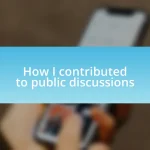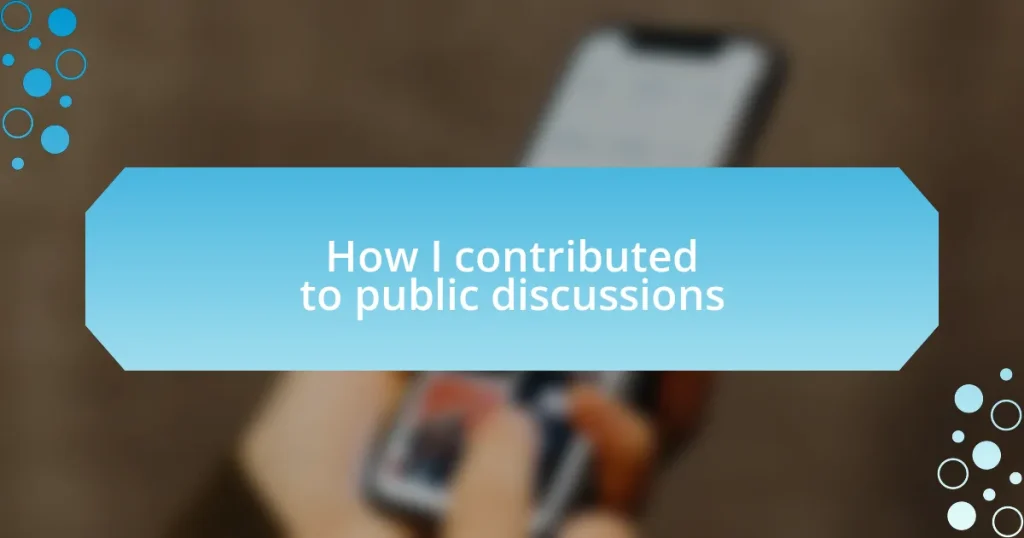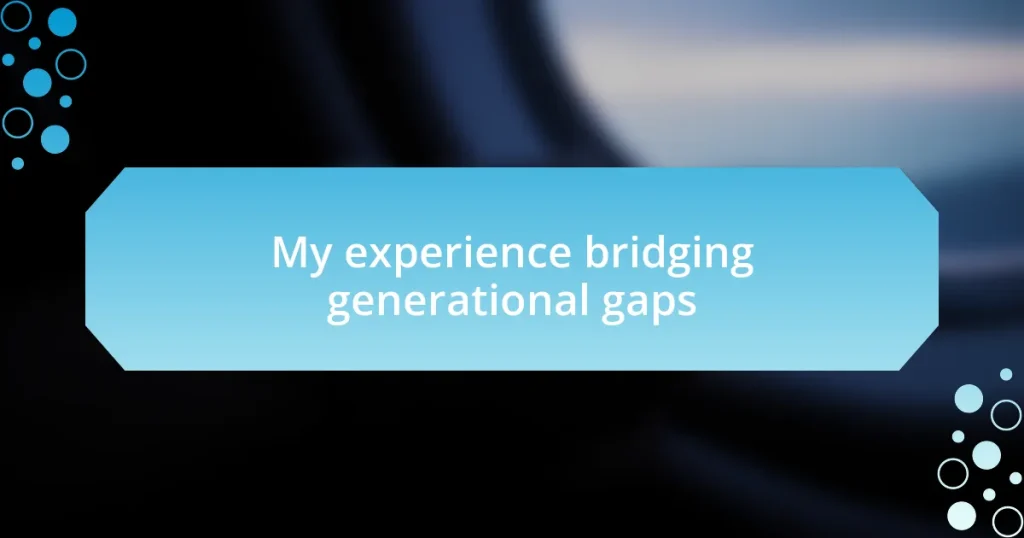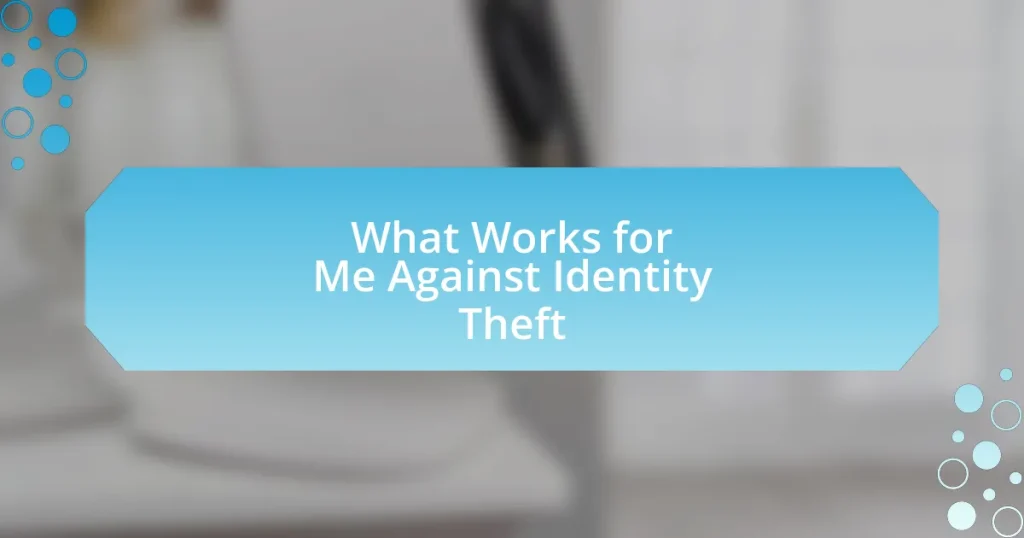Key takeaways:
- Public discussions enhance community engagement and foster accountability through shared perspectives.
- Identifying relevant topics for discussion involves understanding current events, personal experiences, and diverse opinions.
- Effective engagement in communities relies on empathy, respect, and valuing differing viewpoints to facilitate constructive dialogue.
- Measuring the impact of contributions can be done through engagement metrics and feedback, highlighting the importance of personal stories in fostering connections.
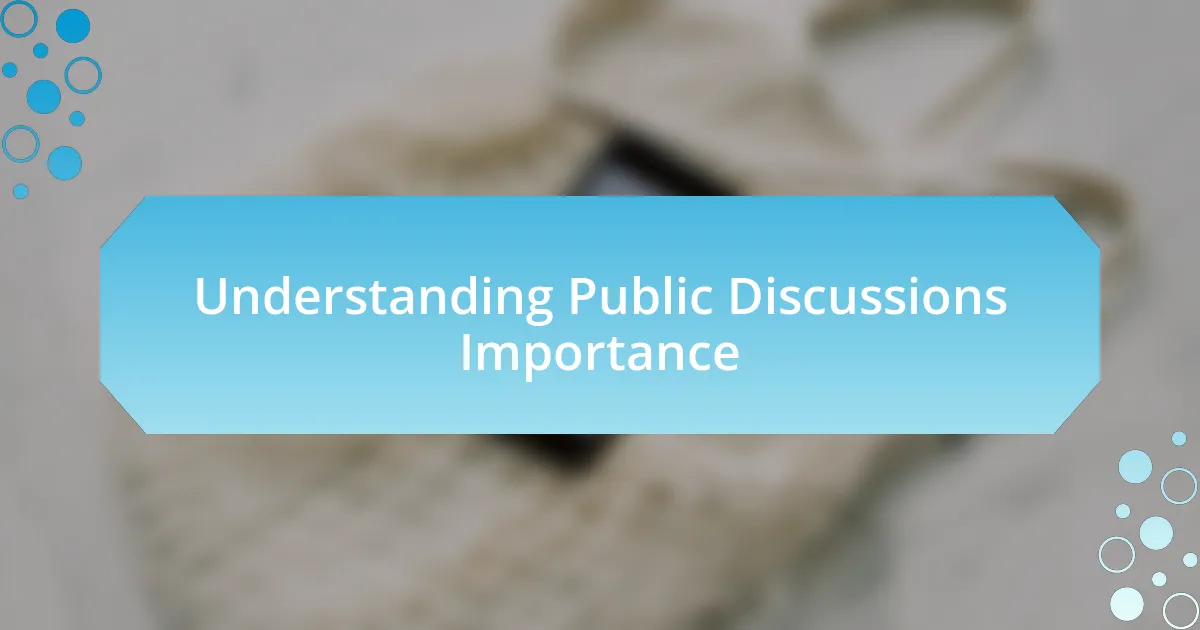
Understanding Public Discussions Importance
Public discussions play a crucial role in shaping our communities and influencing decisions that affect our lives. I remember a town hall meeting I attended where residents passionately voiced their concerns about local pollution. It struck me how a simple conversation can ignite change and foster accountability among those in power.
Engaging in public discussions allows us to hear diverse perspectives, which can challenge our viewpoints and broaden our understanding. For instance, I once found myself at a panel discussing education reform, where a teacher shared her firsthand experiences. Listening to her made me reflect on my own assumptions and the systemic issues we often overlook. Doesn’t it feel empowering to realize that our voices together can drive meaningful dialogue?
Moreover, public discussions cultivate a sense of community that is essential for social cohesion. I often feel that when people come together to share their thoughts, it strengthens our bonds and fosters empathy. Have you ever left a discussion feeling more connected to others, knowing that you shared not just opinions but also dreams and hopes for a better future? That interaction is invaluable in nurturing an engaged and informed citizenry.
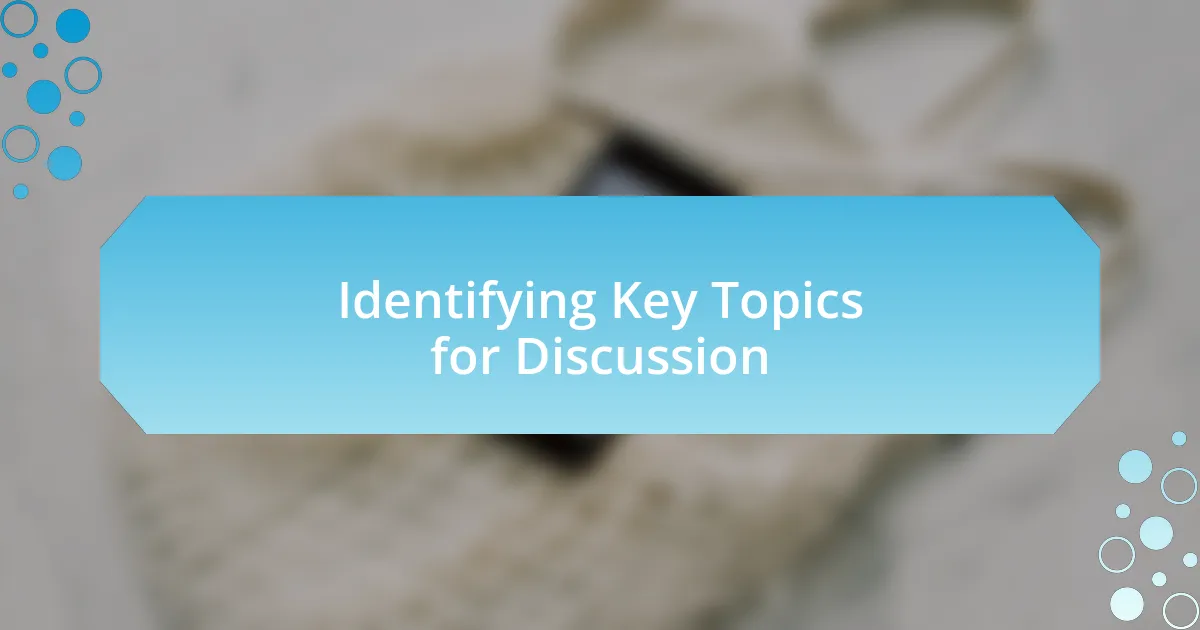
Identifying Key Topics for Discussion
Identifying key topics for discussion often requires keen observation of the world around us. I recall sitting in a café when a conversation about mental health sparked my interest. A couple of patrons were discussing the stigma they faced, and it made me realize how much this issue needs more platforms for dialogue. By listening to those conversations, I felt compelled to delve into mental health discussions, understanding that these topics matter deeply to individuals and communities alike.
When it comes to pinpointing discussion-worthy topics, I recommend considering several factors:
– Current events: What news stories are dominating headlines?
– Local concerns: What issues are affecting your community at the moment?
– Personal experiences: Are there topics that resonate with your journey or those around you?
– Opinions from diverse groups: What varying perspectives can enrich the conversation?
– Trends in social media: What are people talking about online that reflects broader societal feelings?
Engaging with these elements not only pinpoints relevant topics but also fosters rich, meaningful conversations that can create a genuine impact.
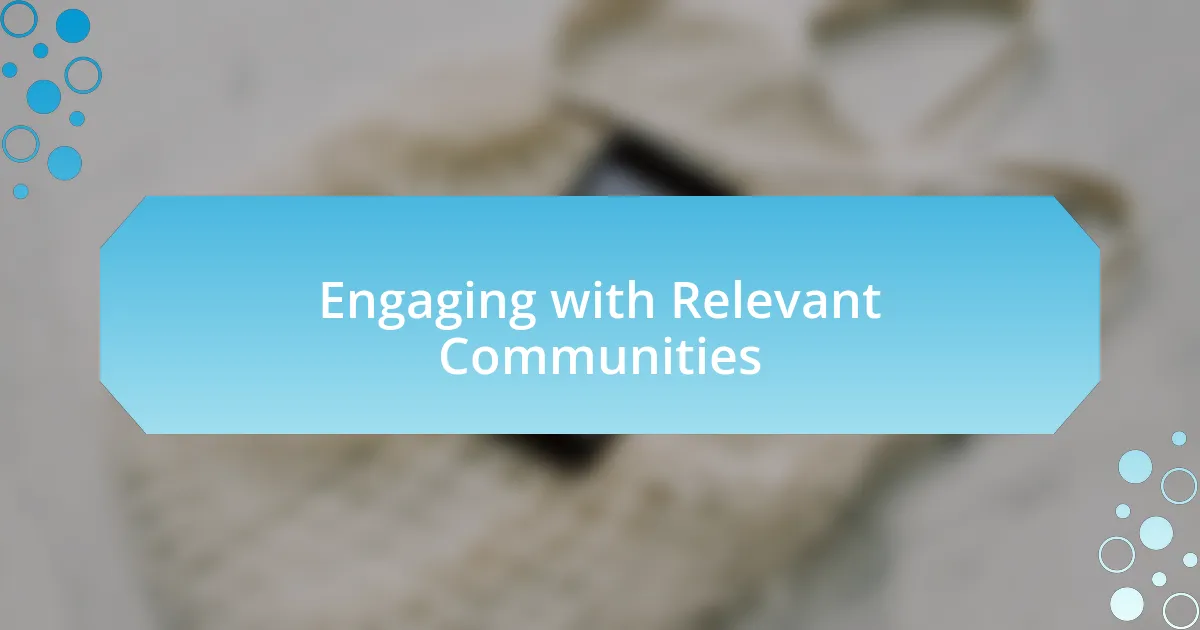
Engaging with Relevant Communities
To truly make an impact, engaging with relevant communities is essential. I remember when I joined an online forum focused on sustainable living. The exchange of ideas and shared experiences not only broadened my understanding but also ignited a passion within me to contribute. By participating in discussions, I learned how collective voices could foster change, inspiring me to replicate that in offline settings.
Another memorable experience occurred during a local community event centered around environmental awareness. As I interacted with various people—ranging from activists to everyday citizens—I discovered the importance of empathy in these conversations. Their stories of struggles and triumphs motivated me to share insights on how personal actions could lead to broader changes. It reminded me that each conversation has the potential to strengthen community bonds.
I have found that engaging with communities means embracing diversity in viewpoints. For example, during a town hall meeting, I witnessed how differing opinions can lead to constructive outcomes when approached with respect. This taught me that the richness of dialogue lies in its variation, and it’s crucial to create spaces where everyone feels valued, ensuring all voices are heard.
| Engagement Aspect | Personal Experience |
|---|---|
| Online Forum Participation | Fostered passion and collective change in sustainable living. |
| Local Community Event | Interacted with diverse individuals enhancing empathy and understanding. |
| Town Hall Meeting | Valued differing opinions leading to constructive dialogue. |
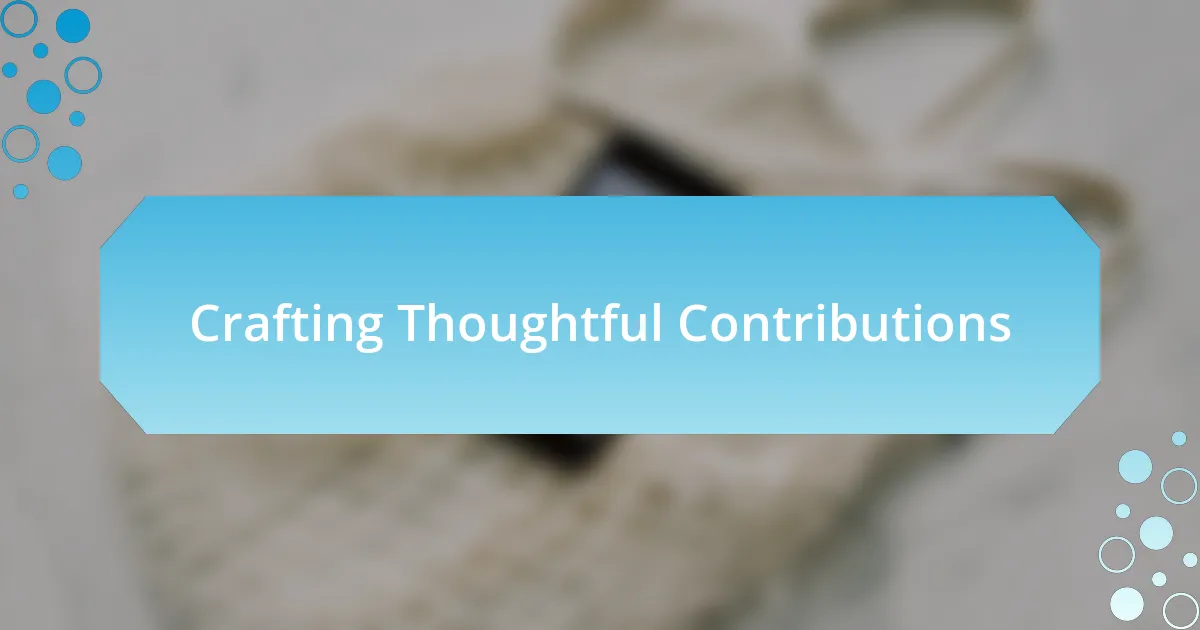
Crafting Thoughtful Contributions
Crafting thoughtful contributions begins with a genuine intent to understand rather than to simply respond. I recall a time during a debate where I was initially eager to present my ideas, but I paused and listened closely to opposing viewpoints. This shift in focus transformed my contribution, allowing me to respond in a way that addressed concerns and built connections instead of just defending my stance. Don’t you think that listening first can lead to more impactful dialogue?
I’ve also found that sharing personal stories can make contributions resonate deeply. For instance, when discussing environmental policies, I shared my own struggles with plastic waste in my daily life. This vulnerability not only sparked interest among others but also encouraged them to share their experiences, fostering a collaborative spirit. It made me realize that authenticity in our contributions not only engages others but also creates a ripple effect of openness and understanding.
Finally, I believe that posing thoughtful questions serves as a tool for deeper engagement. In a recent online discussion about education reform, I asked participants how their experiences shaped their perspectives on the system. The responses poured in, each revealing unique insights and struggles. It reminded me that asking the right questions can turn a simple conversation into a transformative dialogue, encouraging everyone to reflect and actively participate. How often do we miss opportunities by not inviting others into the conversation?
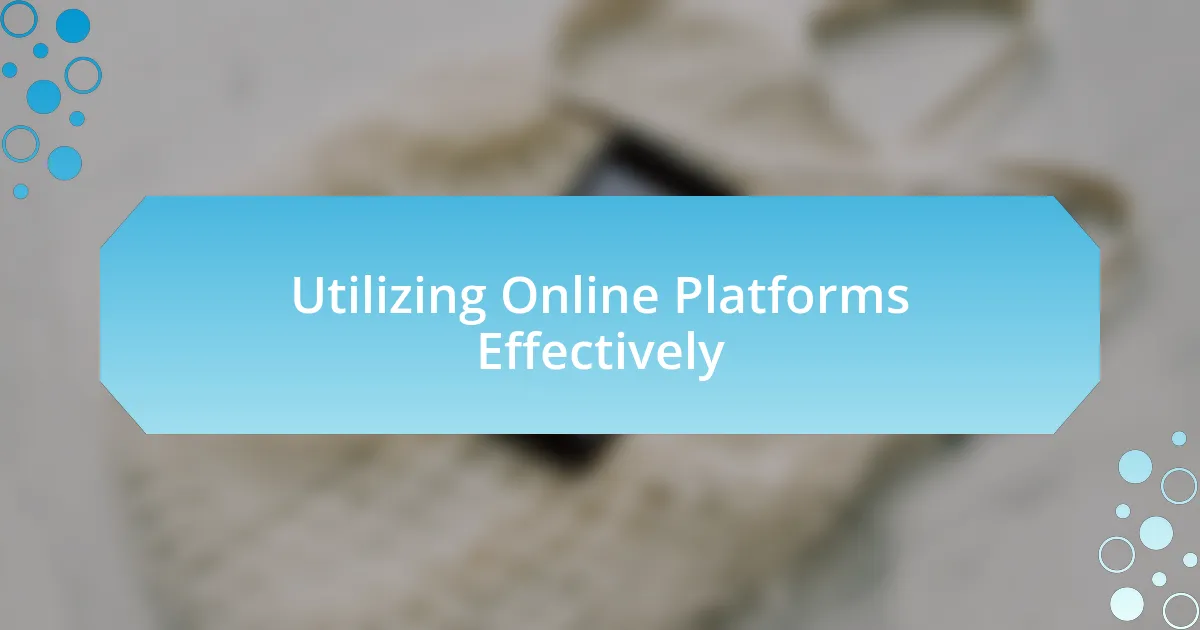
Utilizing Online Platforms Effectively
Utilizing online platforms effectively requires a clear understanding of the environment in which you are participating. I remember joining a social media forum dedicated to mental health discussions. Initially overwhelmed by the sheer volume of conversations, I soon discovered the power of focused engagement. I started by following specific threads that resonated with me, contributing to discussions that felt personal and relevant. Have you ever felt lost in a digital crowd, only to find your voice by honing in on what matters most to you?
In addition, establishing credibility is crucial when participating in online discussions. I once took part in a Twitter chat focused on digital literacy, and I made it a point to cite reputable sources and share my experiences as an educator. By doing so, I not only built trust with other participants but also encouraged them to share their insights. Does sharing your expertise in a meaningful way enhance your presence and impact in online arenas?
Finally, I’ve observed that maintaining a respectful tone can foster a more productive dialogue. During a heated exchange about political policies, I consciously chose to engage with empathy, acknowledging differing opinions while sharing my viewpoint. This approach created space for others to express their thoughts without fear of derision. How can we nurture our online communities by prioritizing respect in our interactions?
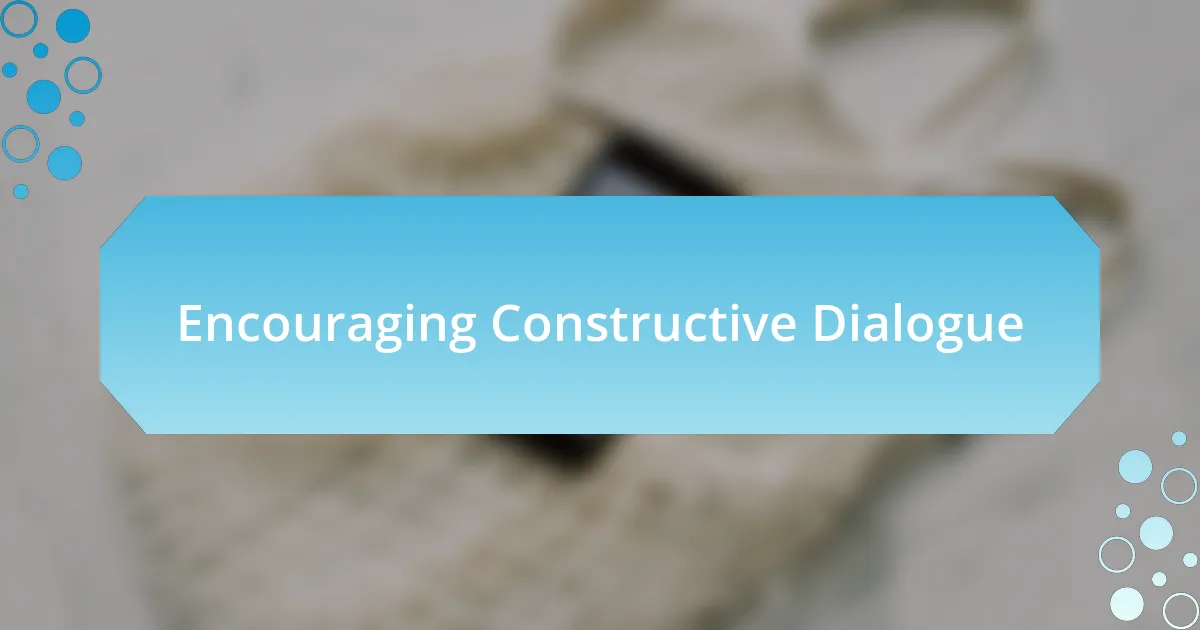
Encouraging Constructive Dialogue
Encouraging constructive dialogue often requires us to be intentional about how we interact with others. I remember participating in an online discussion about climate change, where differing viewpoints often led to tension. To counteract this, I made it a point to ask open-ended questions aimed at understanding opposing perspectives. Have you tried steering conversations in a way that promotes understanding rather than debate?
One effective strategy I’ve found is to share personal stories that connect to the topic at hand. For instance, when discussing education reform, I shared my experiences working with students from diverse backgrounds. This not only helped humanize the conversation but also prompted others to share their stories, making the exchange feel more collaborative. How does sharing our experiences transform a conversation from a debate into a shared journey?
Finally, I believe that active listening plays a vital role in fostering constructive dialogue. During a particularly intense online forum, I took the time to acknowledge contributions from others before responding. By validating their points, I noticed that the tone shifted significantly, allowing for richer and more inclusive conversations. Isn’t it fascinating how listening carefully can open up a dialogue where every voice is valued?
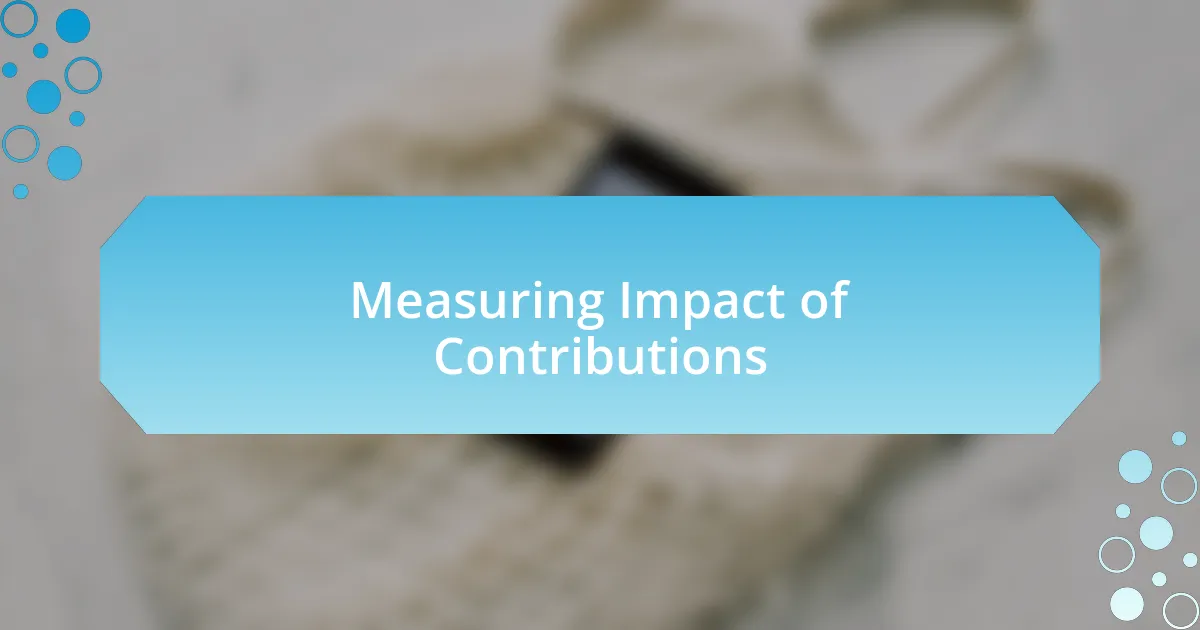
Measuring Impact of Contributions
Measuring the impact of my contributions in public discussions has often been a rewarding experience. I vividly recall an instance where I wrote a blog post about mental health awareness, which sparked a significant response. People shared their personal experiences in the comments, and I realized that even a single article could encourage others to open up and seek help. Isn’t it incredible how putting pen to paper (or fingers to keyboard) can foster real emotional connections?
In assessing the impact, I frequently analyze engagement metrics such as comments, shares, and likes. After participating in a panel discussion on urban sustainability, I checked the social media activity surrounding the event. The shares skyrocketed, indicating that my insights resonated with a broader audience. Did you know that increased engagement can often signal deeper connections with your message?
Another way to gauge impact is through feedback from participants. After facilitating a workshop on effective communication, several attendees expressed how the tools I shared transformed their approach to discussions in their communities. It’s moments like these that remind me that measuring impact isn’t just about numbers; it’s about the stories and changes that unfold as a result of our contributions. How do you feel about the difference your words can make in someone’s life?

